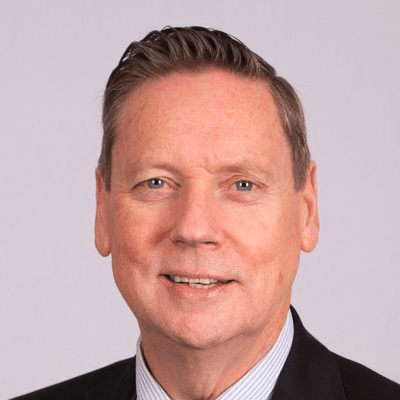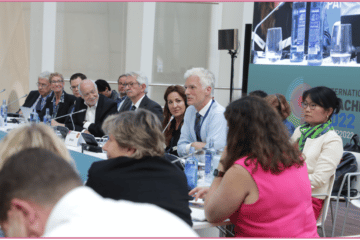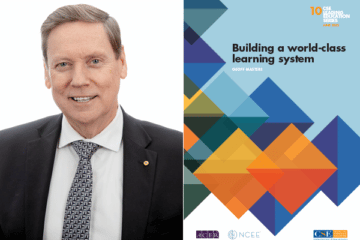NCEE: What did you find were the challenges facing the NSW curriculum?
Geoff Masters: NSW resembles many other school systems in that its curriculum was designed for a different era and economy. Its schools are very much still production lines, with student progression being governed by time. It has a centrally developed curriculum with a detailed syllabus for each K-12 subject. Syllabi often have long lists of learning outcomes. The teachers we talked with worried that, because these lists were so long, they sometimes were unable to teach content in depth. They also reported a lack of time and flexibility to adapt what they taught to the varying needs of their students. The existing curriculum generally expects all students to be taught the same material at the same time and for the same amount of time. We also heard concerns about the intense focus in upper secondary schools on university admissions processes. These processes involve ranking students on their test scores in academic subjects, and have led to a sharp divide between academic “knowledge-based” subjects and vocational “applied” subjects.

These issues are not unique to NSW. They are front and center in many systems around the world. Many are trying to move away from an education system designed for a very different time and with very different challenges than we face today, especially after the COVID-19 pandemic exposed how inadequate our systems are in providing equitable outcomes for students.
NCEE: What were your key recommendations to the NSW government, based on your findings?
Geoff Masters: Based on what we heard from teachers and from parents who shared similar concerns, we recommended:
- paring back syllabi to give greater priority to key underlying concepts and deeper learning of those concepts, and integrating general competencies throughout the syllabi;
- making syllabi “untimed” to allow students to progress at their own pace and give teachers flexibility to differentiate instruction for individual students;
- restructuring senior secondary courses into broad learning areas that would include both academic and vocational learning within each, all of which would have a high level of rigor and integrate knowledge and skills; and
- moving away from a university admissions system that publicly ranks students by composite test scores and providing universities with a broader picture of student accomplishment.
NCEE: Can you tell us more about why and how you would revise the content of syllabi?
Geoff Masters: Early in the review, I was asked if there was a certain percent of content I would recommend eliminating from each syllabus. I really did not want to think about it that way. It wasn’t a question of just slashing 15 or 20 percent from each syllabus. If we’re looking at deep learning (which we should be), we want to develop students’ understandings of essential concepts, principles and methods of a discipline. To do that, you need to focus the syllabus in each subject on core understandings and choose and organize factual and procedural knowledge that promotes deep learning. It is about enabling teachers to teach deeply rather than superficially. Many current syllabi result in teachers racing through content, worried that they will disadvantage students on tests if they do not cover every learning outcome.
You need to focus the syllabus in each subject on core understandings and choose and organize factual and procedural knowledge that promotes deep learning. It is about enabling teachers to teach deeply rather than superficially.
Another issue is that current syllabi do not deeply integrate general competencies — what many call 21st century skills — into subjects. Teachers are encouraged to teach these competencies, but they are often seen as separate and less important in practice than the content of subject syllabi. Ideally, these competencies would be seen as an integral part of what it means to learn and become more competent in a subject.
NCEE: Untimed syllabi, or competency-based learning, is an idea a lot of people support. But it’s hard to implement. Can you share your thinking on this?
Geoff Masters: The word we heard most frequently from teachers we interviewed was “flexibility”. They felt that they needed more time and flexibility to adapt what they taught to the needs of students. This included more flexibility in the pace of learning. Students need an appropriate level of challenge in order to learn. And that level varies for students. In Australia, students in each grade differ in their levels of attainment by about five to six years of learning, meaning that many students are far behind what teachers are teaching, and a fair number are far ahead. The equitable way to teach is not to teach everyone the same thing at the same time in the same way: it’s to meet students where they are.
But it’s a challenge to do this. Teachers can organize learning to differentiate instruction for students at maybe two or three levels of attainment, possibly by collaborating with other teachers. Meeting the full range of student needs may require a school-level response. The trick is to figure out ways of differentiating instruction without labeling students or locking them into a particular “stream” or “track.”
The equitable way to teach is not to teach everyone the same thing at the same time in the same way: it’s to meet students where they are.
NCEE: The divide between academic and vocational education in high school is an issue facing many systems. How would your proposal address those issues?
Geoff Masters: I think the issue is not just about how to raise the “status” of vocational education in secondary schools. It’s about how all learning in these years is structured. In NSW, academic courses — and the tests at the end of them — focus almost exclusively on knowledge. Vocational courses focus almost exclusively on skills. What students need for the future, no matter what they plan to do, is both knowledge and skills. To promote this, I proposed introducing broad learning areas — such as Business, Economics and Financial Services; Humanities, Society and Social and Community Services; Mathematics and Sciences; and Engineering, Construction and Manufacturing. Within each of these areas, every subject would develop both knowledge and skills and provide foundations for post-secondary education and training. Some subjects would be more theoretical, and others more practical, but instead of requiring students to choose between an academic path or a vocational path, students would be offered a range of high quality subjects and flexible pathways.
NCEE: The focus on university admission exams is a concern shared by many systems. Why are you specifically concerned about the way that NSW consolidates students’ test scores to rank students?
Geoff Masters: The Australian Tertiary Admissions Rank (ATAR) system reinforces the intense focus on academic courses and external examinations in senior secondary school. But it also reduces information about each student to one data point rather than encouraging universities to consider a broader set of information about how a student has performed at school and what they have achieved outside school. The system also undervalues vocational learning as grades in those subjects are not included in ATAR calculations because they are not based on written examinations.
NCEE: Where is NSW on implementing your recommendations?
Geoff Masters: The NSW government officially accepted most of the recommendations and has started to revise the full K-12 curriculum. Revisions will focus on the goals of prioritizing what is essential; providing opportunities to apply knowledge and develop general capabilities; and better connect senior secondary learning with employment and further study options. They have a target of completing this by 2024 – an ambitious timeline, as it will involve a lot of careful analysis and design. They have also committed to trying to find more “time” for teachers during the school day by reducing administrative and extra-curricular responsibilities. There is no planned change to the ATAR system, but this is under discussion nationally. And although the idea of untimed syllabi is not being implemented currently, there is agreement to explore the idea.




